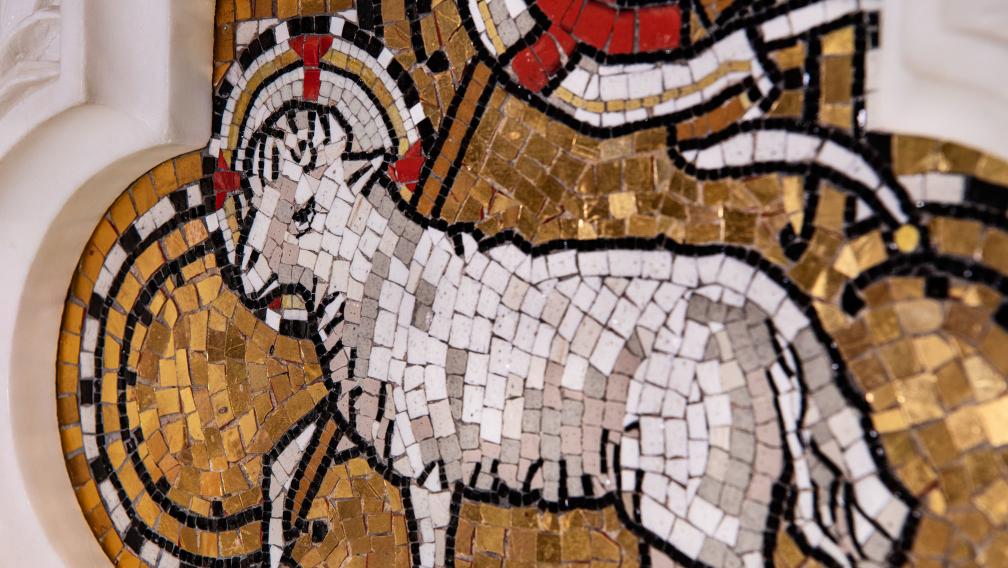LUKE 4:14–21
Jesus, filled with the power of the Spirit, returned to Galilee, and a report about him spread through all the surrounding country. He began to teach in their synagogues and was praised by everyone.
When he came to Nazareth, where he had been brought up, he went to the synagogue on the sabbath day, as was his custom. He stood up to read, and the scroll of the prophet Isaiah was given to him. He unrolled the scroll and found the place where it was written:
“The Spirit of the Lord is upon me,
because he has anointed me
to bring good news to the poor.
He has sent me to proclaim release to the captives
and recovery of sight to the blind,
to let the oppressed go free,
to proclaim the year of the Lord's favor.”
And he rolled up the scroll, gave it back to the attendant, and sat down. The eyes of all in the synagogue were fixed on him. Then he began to say to them, “Today this scripture has been fulfilled in your hearing.”
In this Sunday’s Gospel, Jesus returns to his hometown of Nazareth and boldly reads from the scroll of the prophet Isaiah. Astonishing all who hear him, Jesus makes a powerful claim: that he is the one Isaiah has spoken of, the one who has come to proclaim “the year of the Lord’s favor.” Jesus makes the message of the gospel clear and concrete, reminding his community of the mandate inherent to their own scriptures. He emphasizes that his mission, indeed God’s heart, is oriented towards freedom for the oppressed — liberation for those who struggle under the weight of poverty, for those in prison, for those who are unwell or afraid. His work and life are anointed, Jesus claims, to fulfill this good news: that God is for and with all who suffer. The work of discipleship — the work of following Jesus — thus reorients us towards assisting those in need in tangible ways, allowing God to speak through us, so that “the year of the Lord’s favor” extends to the here and now.
—Summerlee Staten
THEOLOGY
Isaiah 61, the passage Jesus reads in the Synagogue, functions as a word of hope.
VISUAL ART
James Tissot’s painting of Jesus in the synagogue, at the Brooklyn Museum, highlights his return to his hometown of Nazareth.
POETRY
Rachel Held Evans helped us remember the words of Teresa of Avila’s poem, that “Christ has no body but [ours].” We are the ones called to bring “good news to the poor.”
SOCIAL JUSTICE
The Episcopal Church provides resources for communities to help address domestic poverty.
MUSIC
Composer Philip Stopford’s “Spirit of the Lord” takes Isaiah 61 as its inspiration.
Get the Five Ways In Your Inbox
Sign up to receive reflections and updates from the Faith Formation & Education team.
Coming Up
Join Discovery this Sunday for the first in a two-week discussion with Dr. Lisa Bowens, Professor of New Testament at Princeton Theological Seminary, about her book, African American Readings of Paul: Reception, Resistance and Transformation. (Please note: Through February, Discovery will meet online only.)
The Discovery subcommittee of the Congregational Council invites all parishioners and Sunday Discovery attendees to join planning meetings to help shape the Discovery adult education programs for next year (September 2022–June 2023). Come help us think about enriching program ideas and speakers on Thursdays, January 20 and 27, from 6:30–8pm. RSVP to ChristianFormation@trinitywallstreet.org.
On February 3, Join Dr. Catherine Meeks and the Rev. Canon Stephanie Spellers in conversation about the meaning of reconciliation and Canon Spellers’ book The Church Cracked Open: Disruption, Decline, and New Hope for Beloved Community.
